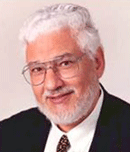Next month, Egyptians have to make a tough choice in the second round of the presidential election, June 3-9 for expatriates and June 16 and 17 for those in the country. The choice is between the Muslim Brotherhood’s candidate Mohamed Morsi and Ahmed Shafiq who was appointed by Mubarak as a prime minster before he had to step down. Both are not trusted by the majority of Egyptians to take the country forward.
The blame for this outcome squarely falls on the MB; their political performance was/is mediocre at best and dirty politics is clearly their core value.
Although many non-MB voters gave them a chance and voted for their candidates during the elections of the upper and lower houses of parliament, they watched with horror their manipulative politics in the last several months; attacking the government so it can be replaced with one of their own, opposing the recent youth demonstrations, dominating the committee for writing the constitution, raising trivial issues in parliament, shutting parliament when it does not suite them and above all not honouring their promise not to push one of their leaders to run for the president office.
Instead, the MB pushed two of their leaders to run for the top office, Khairat El-Shater who was de-listed because he was convicted on charges of money laundering under Mubarak and Mohamed Morsi.
Alternatively, the MB has refused to support their ex-MB member Abdel Moneim Abul Fotouh who was kicked out when he decided last year to run for president against the MB leadership’s decision at that time not to have a MB member to run for president.
Because the general turn out for the first round of the presidential election was some 50% of the eligible voters and the percentage among the MB’s members was much higher, Morsi got to run for the second round despite the fact he has none of the leadership qualities of the two runner-ups; the number three Hamdeen Sabahi and the number four Abdel Moneim Abul Fotouh.
Unlike Sabahi and Abul Fotouh, Morsi has no charisma and not a cultured person. And unlike Sabahi and Abul Fotouh, as a student at Cairo University Morsi was not known for his student activism, e.g. Morsi was not part of the student protests that took place against Sadat for continuing the situation of no war-no peace that prevailed from 1970 until October 1973. Moreover, Morsi has applied for his two sons’ American birth certificates while he was a grad student in the US and his sons are still American citizens; not against Egyptian election law but against its spirit.
Unlike Sabahi and Abul Fotouh who emerged as leading political figures during and following their university years, Sabahi within the national civil movement and Abul Fotouh within the Islamist one, Morsi was never a political leader.
Thanks to the MB, Egypt has lost two excellent would-be presidents; Sabahi and Abul Fotouh and both I met at length.
I believe Sabahi would have been a better president than Abul Fotouh. Election results show Sabahi was the people’s number one choice in Egypt’s largest governesses; Cairo and Alexandria although his campaign’s finance was modest and has no big financiers, unlike Morsi with his rich MB backing and Shafiq with his old regime business people.
Sabahi is a charismatic revolutionary political leader with solid ideological convictions for social justice. He was barred from political participation during Sadat’s and Mubarak's long years. He was never a member of the MB, unlike Morsi and Abul Fotouh. He formed some 20 years ago the Karamah (Dignity) party and to his credit he refused several offers from Mubarak’s regime to sing their songs.
Abul Fotouh's recent support from the Salafi groups and his ability to amass political support from everywhere did him more harm than good.
Alternatively Sabahi has never changed his colors; a moderate Muslim who is embracing the dreams of the January 25 revolution in achieving economical development, freedom and social justice and if elected president he would have been president for all Egyptians; young and old, rich and poor, and Muslims and Christians.
During his campaign, Morsi has been keen to deny that if elected his loyalty would be to the Muslim Brotherhood's supreme guide, Mohamed Badie, rather than the people of Egypt. But Morsi has been accused of using religion to manipulate voters. The MB's online page features a fatwa stating that voting for Shafiq "is against Sharia".
In the same way that it was not possible to predict the outcome of the first round, it is impossible to anticipate who will be Egypt’s next president.



